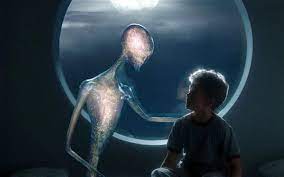The Rise of Artificial Intelligence: Transforming the Future
Artificial Intelligence (AI) is no longer a concept confined to science fiction. It has become an integral part of our daily lives, influencing industries, reshaping economies, and transforming how we interact with technology. From virtual assistants to advanced data analytics, AI is redefining the boundaries of what machines can do.
Understanding Artificial Intelligence
At its core, AI refers to the simulation of human intelligence processes by machines, particularly computer systems. These processes include learning, reasoning, problem-solving, perception, and language understanding. AI technologies are built on algorithms that allow computers to perform tasks that typically require human intelligence.
Applications of AI
The applications of AI are vast and varied:
- Healthcare: AI is revolutionizing healthcare by enabling faster diagnosis through image recognition and predictive analytics. It assists in personalized medicine by analyzing patient data to recommend tailored treatments.
- Finance: In finance, AI algorithms are used for fraud detection, risk management, and automated trading. They help financial institutions process large volumes of data efficiently.
- Automotive: Self-driving cars are a prominent example of AI in action. These vehicles use machine learning algorithms to navigate roads safely and efficiently.
- Retail: Retailers use AI for inventory management, customer service via chatbots, and personalized shopping experiences through recommendation engines.
- Agriculture: AI-powered drones and sensors help farmers monitor crop health and optimize resource usage.
The Impact on Society
The integration of AI into various sectors offers numerous benefits but also poses challenges. On one hand, it increases efficiency and opens up new possibilities for innovation. On the other hand, it raises concerns about job displacement as automation becomes more prevalent.
The ethical implications of AI are also a topic of ongoing debate. Issues such as data privacy, algorithmic bias, and decision-making transparency need careful consideration to ensure that AI developments align with societal values.
The Future of Artificial Intelligence
The future holds immense potential for further advancements in artificial intelligence. As technology continues to evolve rapidly, we can expect even more sophisticated applications across various domains. The key will be balancing innovation with ethical considerations to harness the full potential of AI responsibly.
In conclusion, artificial intelligence is a transformative force that will continue to shape our world in unprecedented ways. Embracing its capabilities while addressing its challenges will be crucial as we move forward into an increasingly digital future.
Answers to Your Top 5 Questions About Artificial Intelligence (AI)
- What are the beings at the end of AI?
- What is the artificial intelligence AI?
- What is the meaning of AI?
- Is it AI or artificial intelligence?
- What year is AI set in?
What are the beings at the end of AI?
In the movie “A.I. Artificial Intelligence,” directed by Steven Spielberg, the beings at the end are advanced robots referred to as “Mecha.” These highly evolved machines have outlasted humans and have developed sophisticated technology and intelligence. Unlike their human creators, these Mecha possess a deep understanding of emotions and human history. In the film’s conclusion, they discover David, a humanoid robot child designed to love unconditionally, and they grant him one final day with his long-lost mother through advanced simulation technology. This poignant ending highlights themes of longing, memory, and the enduring impact of human emotion on artificial life.
What is the artificial intelligence AI?
Artificial Intelligence (AI) refers to the development of computer systems that can perform tasks typically requiring human intelligence. These tasks include learning from experience, understanding natural language, recognizing patterns, solving problems, and making decisions. AI systems are designed to process vast amounts of data quickly and accurately, enabling them to identify trends and insights that might be difficult for humans to discern. By using algorithms and machine learning techniques, AI can improve its performance over time without being explicitly programmed for specific tasks. This technology is increasingly integrated into various sectors such as healthcare, finance, automotive, and more, driving innovation and efficiency across industries.
What is the meaning of AI?
Artificial Intelligence, commonly referred to as AI, is the branch of computer science focused on creating systems capable of performing tasks that typically require human intelligence. These tasks include learning from experience, recognizing patterns, understanding natural language, and making decisions. AI encompasses a range of technologies, from simple automation and machine learning to more complex neural networks and deep learning algorithms. The goal of AI is to develop machines that can mimic cognitive functions such as perception, reasoning, and problem-solving, enabling them to operate autonomously in various environments and applications. As AI continues to evolve, it plays an increasingly significant role in shaping industries and influencing how we interact with technology in everyday life.
Is it AI or artificial intelligence?
When referring to the field of artificial intelligence, it is common to use both the abbreviation “AI” and the full term “artificial intelligence” interchangeably. While “AI” is a shortened version that is widely recognized and used in various contexts, “artificial intelligence” provides a more descriptive and formal representation of the technology. Whether you choose to use “AI” or “artificial intelligence,” both terms refer to the same concept of creating intelligent machines that can perform tasks typically requiring human intelligence.
What year is AI set in?
Artificial Intelligence (AI) is not set in a specific year, as it is an evolving field that has been developing over several decades. The concept of AI dates back to the mid-20th century when pioneers like Alan Turing began exploring the idea of machines simulating human intelligence. Since then, AI has progressed through various stages, from early rule-based systems to advanced machine learning and neural networks today. Significant milestones include the development of expert systems in the 1970s and 1980s, the resurgence of interest in neural networks in the 2000s, and the explosion of deep learning techniques in recent years. AI continues to advance rapidly, with ongoing research and innovation pushing its capabilities further into the future.



